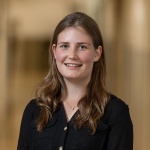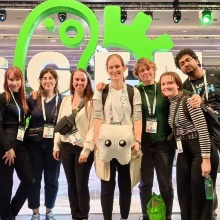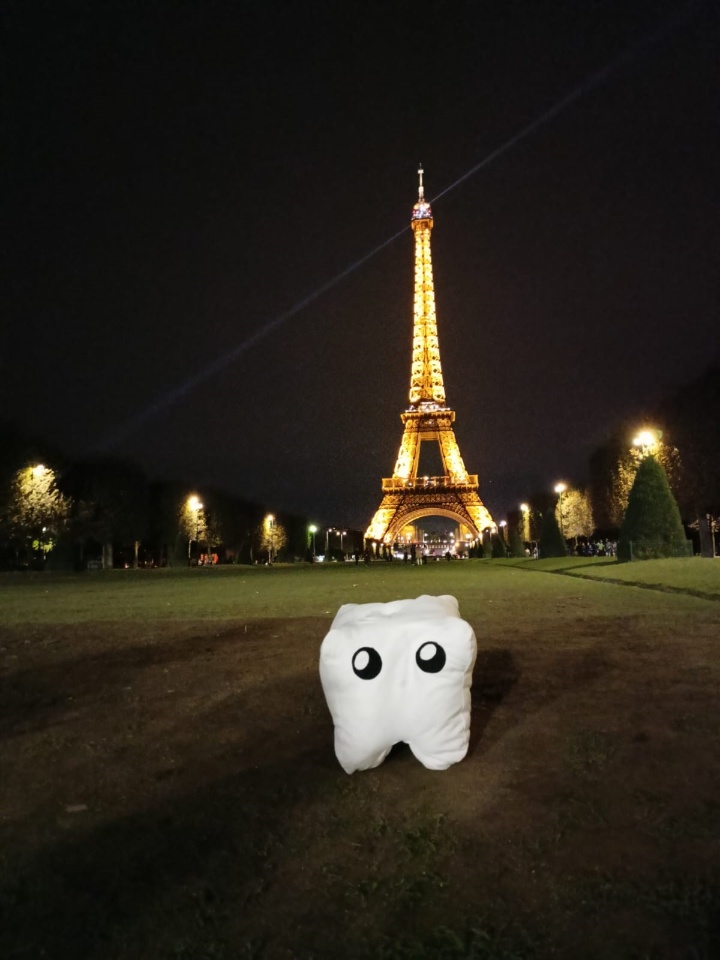Planning, getting started, starting again from scratch and trying out new solutions: This is all part of research. 15 students from the University of Stuttgart have experienced this over the past seven months, but the effort was worth it. Their research project "DentoZym" was awarded a silver medal at this year's iGEM conference.
Preventing tooth decay under laboratory conditions
Around 400 teams of young scientists from more than 40 countries presented their research projects at the iGEM conference, the world's most renowned conference for synthetic biotechnology. "Taking part in the conference, known as the Jamboree, is a real highlight for us and the crowning moment of our research project," says Kati Hub, leader of the 15-strong team of technical biology students.
Inspired by a lecture on microbiology, the students have developed an alternative method of preventing tooth decay. The students use enzymes, instead of relying on mechanical aids such as toothpastes with abrasive particles or rotating brush heads. "We use enzymes to break up the biofilm on the teeth that causes tooth decay in the first place," explains Hub. "Antimicrobial peptides and monolaurin are then used to fight the bacteria that causes tooth decay."
Creativity and teamwork ensure success
But it was hard work. "As is often the case in research, not everything always worked straight away," reports Hub. There was a lot to organize, from project funding and finding sponsors to laboratory work. "Even though it was difficult, and we sometimes needed several attempts to overcome hurdles, we didn't give up."
The students received expert support from their supervisors Prof. Martin Siemann-Herzberg, Jun. Prof. Michael Heymann and iGEM coordinator Prof. Björn Voß from the Faculty of Energy, Process and Bioengineering. "Our goal is to give students the freedom to conduct research so that they can test their theoretical and practical knowledge under almost real research conditions," says Voß. "They practice creative thinking, team organization and learn how to deal with the research results and the inevitable troubleshooting."
Sharing research results and experience with the next generation
The team mascot Zahni is always a great help. During the preparations for the iGEM, the students visited schools in Baden-Württemberg to present their project to pupils in grades 8 to 12 and to instill them with an enthusiasm for research. "Zahni was a great illustrative object, especially for younger school students, to explain how our method helps prevent tooth decay," says Hub.
The project was not only popular with school students, it was also well-received at the iGEM final in Paris. "Setting up a project like iGEM and planning everything yourself, from conception to implementation, as well as incorporating your own ideas is a great opportunity to put into practice what you have already learned during your studies," says Hub enthusiastically. "We are delighted with the great result."
About iGEM
iGEM stands for international genetically engineered machine competition. Held annually since 2004, this is the largest and most renowned competition for synthetic biology. This year, the conference was held in Paris. There are iGEM teams at numerous universities around the world, comprising from 10 to 15 students.
The young scientists have around seven months to independently develop their own project and submit the research findings in written form. In November, the teams present their project and the results in person at the competition, where they compete against the other teams.
University Communications
Keplerstraße 7, 70174 Stuttgart

Jacqueline Gehrke
Online Editor



